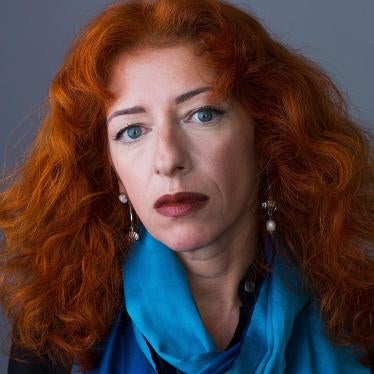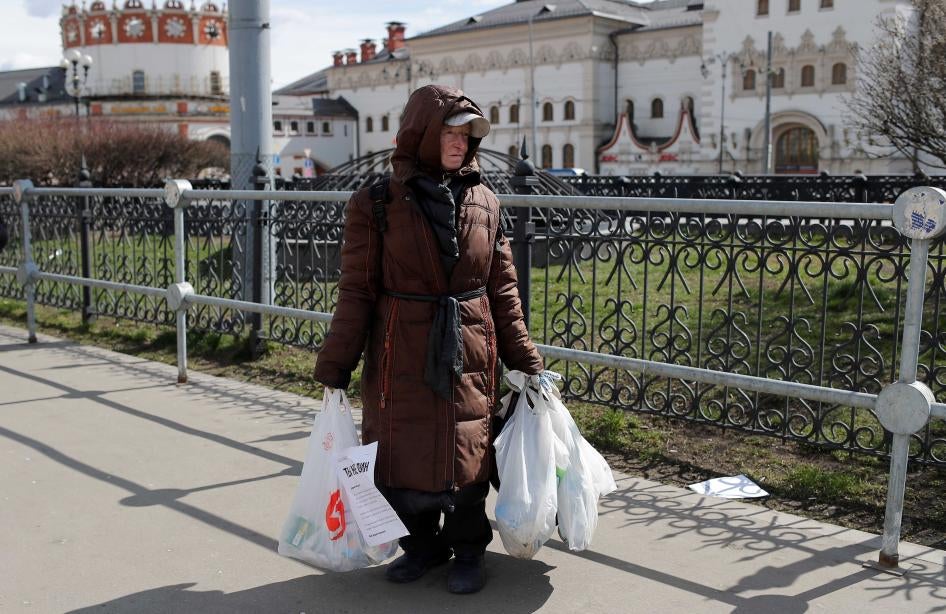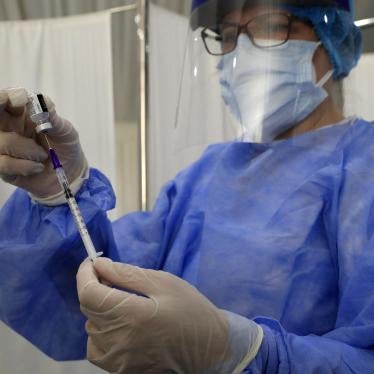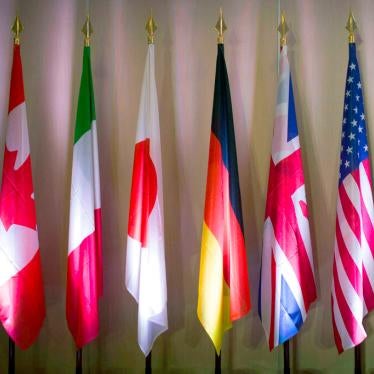While “Safe at Home” becomes a global motto, those without a home find themselves particularly vulnerable. In Moscow, which now has 14,776 of Russia’s 24,490 officially registered Covid-19 cases, the homeless population, numbering around 80,000, largely depends on local activists who distribute food and antiseptics to try to prevent the spread of the virus. But on April 12, police detained two volunteers with the activist group “Food Not Bombs,” as they were handing out food, clothes, and personal hygiene products near the Kursky train station in Moscow’s center.
Andrei (not his real name) was detained first. “One of the police officers roughly grabbed my arms without identifying himself [and] without explanation…. They forcibly took my personal belongings, with no write-up or anything,” he said. When he was put into the police vehicle, his friend Anna (not her real name) approached the police to ask why they detained Andrei and where they were taking him. Instead of answering her, the officers detained Anna as well and argued that if people had no home it was “their own fault”.
Andrei and Anna emphasized that all the volunteers wore masks and gloves and required the clients keep a distance from one another while queuing up for food and supplies. Andrei noted that despite talking about public safety, one of the officers was wearing neither a mask nor gloves.
The police charged the activists for violating the self-isolation regime that Moscow, like many other large cities across the globe, has established. Under regulations in force at least through the end of April, Moscow residents are only allowed to leave home to shop for groceries, go to a medical facility or pharmacy, or walk the dog. If people absolutely need to go to work, they must obtain a special pass.
Andrei and Anna will have a court-hearing on April 27. The administrative offense they’re charged with is punishable by fines ranging from 15,000 to 40,000 rubles. Their volunteer work may not be listed as an essential function under Moscow’s stay-at-home regime, but Andrei and Anna were providing a lifeline for the homeless during these dire times. This is all the more so given the government is not providing any assistance to the homeless during the lockdown. They should not be punished for trying to save lives.










